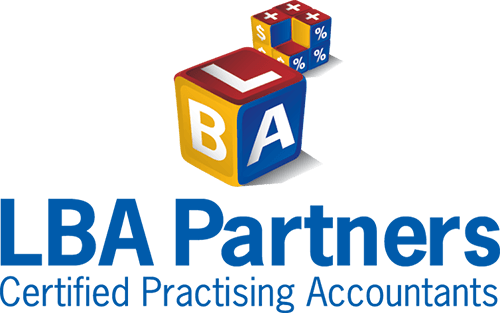P r a c t i c e U p d a t e
November 2010
Year-end break-up parties
The December/January break is on the way, and many employers and businesses will be planning their annual year-end break-up party.
However, an important issue for clients to consider is the possible FBT and income tax implications of providing 'entertainment' (including Christmas parties) to staff and clients.
Under the Tax Act, employers must choose how they calculate their FBT entertainment liability and most use either the actual method or the 50/50 method.
Under the actual method, entertainment is normally split up between employees (and their family) and non-employees (e.g., clients/suppliers).
Expenditure on employees is liable to FBT and deductible. Expenditure on non-employees is not liable to FBT, and is not tax deductible.
Using the 50/50 method instead?
Rather than apportion entertainment expenditure between staff, associates and business clients, etc., many employers choose to use the simpler 50/50 method.
Under this method, where food and drink is provided (irrespective of where the party is held or who is attending) – 50% of the total expenditure is subject to FBT and 50% is tax deductible.
However, the following traps must be considered:
- even if the function is held on the employer's premises – food and drink provided to employees is not exempt from FBT;
- the minor benefit exemption* cannot apply; and
- the taxi travel exemption cannot apply.
(*) Minor benefit exemption
The minor benefit exemption provides an exemption from FBT for benefits of 'less than $300' which are provided to employees (and their associates) and which are infrequent and irregular.
The Tax Office accepts that different benefits provided at (or about) the same time are not added together when applying this threshold.
Basically, this means that a Christmas party and gift may be exempt from FBT, even if provided at the same time, as long as the cost of each benefit is less than $300.
Editor: And that's 'less than' $300, i.e., no more than $299.99. A $300 gift to an employee will be caught for FBT whereas a $299 gift is exempt. That's the wonderful world of tax!.
Example: FBT, Tax and a Christmas party
An employer holds an external Christmas party for employees and their spouses.
The cost of food and drink per person is $250, and no other benefits are provided.
If the actual method is adopted:
- For employees attending on their own or with their spouse – no FBT is payable (i.e., the per head cost is less than $300) and no tax deduction will be allowed.
If the 50/50 method is adopted:
- 50% of the total expenditure is subject to FBT and is tax deductible.
Cristmas and other gifts
In addition, many businesses will be considering what gifts, if any, they will provide to clients, suppliers, employees and possibly their family members.
The following sets out the FBT and income tax consequences.
Gifts which ARE NOT considered to be entertainment
These generally include, for example:
- a Christmas hamper, a bottle of whisky, wine, etc.; and
- gift vouchers, a bottle of perfume, flowers, a pen set, etc.
Briefly, the FBT and tax consequences for these gifts are as follows:
- gifts to employees and family members of less than $300 – no FBT and a tax deduction is allowed;
- gifts to employees and family members of $300 or more – FBT is payable and a tax deduction is allowed; and
- gifts to clients, suppliers, etc. – no FBT and a tax deduction is allowed.
Gifts which ARE considered to be entertainment
These generally include, for example:
- tickets to attend a theatre, live play, sporting event, movie or the like; and
- a holiday airline ticket or admission ticket to an amusement centre.
Briefly, the general FBT and income tax consequences for these gifts are as follows:
- gifts to employees and family members – FBT is payable and a tax deduction is allowed (except where the minor benefit exemption applies); and
- gifts to clients, suppliers, etc. – no FBT and no tax deduction.
Editor: While we have tried to simplify the rules, we understand that it can get complicated, so give us a call if you would like a hand.
ATO benchmarking small business
ATO benchmarking small business
The ATO's new benchmarking process (which sets out average income and other benchmarks for 100 industries) means that, for small businesses, the detail and the quality of taxpayers' record-keeping is about to take the spotlight.
The message from the ATO is clear: keep good records and the taxpayer has nothing to fear.
Fail to keep good records and the onus will be on the taxpayer to prove the ATO wrong, if and when they apply the benchmark and issue a default assessment.
What the ATO has to say
The ATO says that in dealing with the cash economy it isn't their intention to issue arbitrary default assessments, and that there is a robust process they follow in relation to benchmarking audits.
The ATO has every intention of ensuring that taxpayers who report figures that do not line up with the benchmarks become aware that their record keeping is the only thing that will keep them safe from having the benchmarks applied.
There may be other compelling reasons, such as sickness or extended breaks from work which the ATO will take into account, but the bottom line is being able to prove the income and expenses that are reported. If not, the benchmarks will be applied.
Tax Office warns of cheque scam
The Tax Office has warned taxpayers to be aware of counterfeit ATO cheques supposedly issued by the ATO and drawn on the Reserve Bank of Australia.
“The counterfeit cheques are realistic in look and feel authentic; only after being put through a fluorescent scanner are they revealed to be fakes,” the Tax Commissioner said.
The counterfeit cheques are often being sent from overseas as advance payment for accommodation, quite often around or near universities.
The cheques are made out for a few thousand dollars more than the asking rent, and there is an accompanying letter requesting the balance of the overpayment be returned to the sender via Western Union transfer.
If taxpayers are contacted by someone claiming to be from the government or a financial institution, they should verify who they are by independently finding their contact details and contacting them directly.
Please Note: Many of the comments in this publication are general in nature and anyone intending to apply the information to practical circumstances should seek professional advice to independently verify their interpretation and the information's applicability to their particular circumstances.
Management Consulting
We have the know-how and experience to offer advice that helps you run your business more effectively.
Self-Managed Superannuation Funds
At LBA Partners we provide the professional advice you need to manage your own fund and greatly simplify the process for you.



